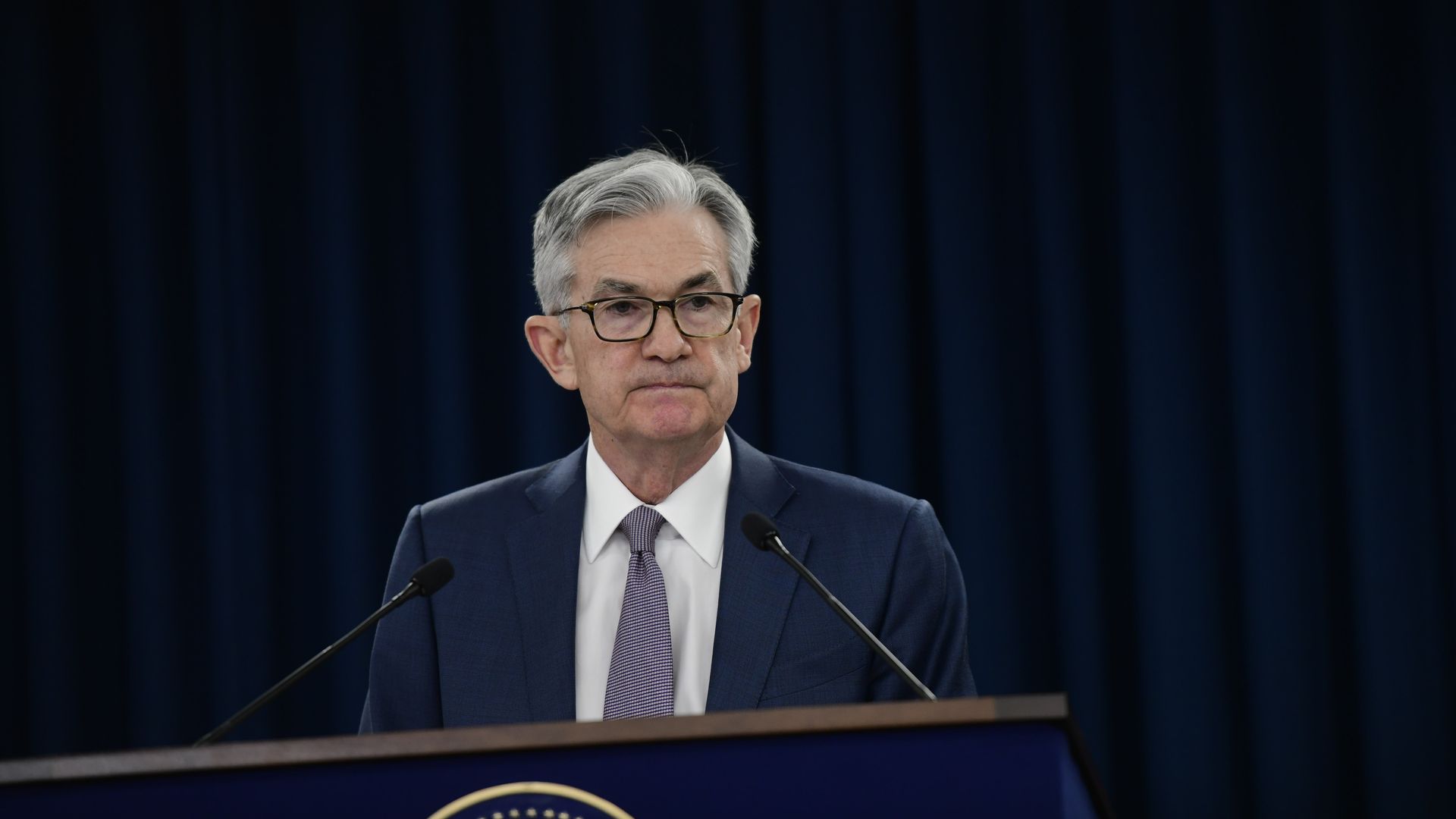Fed says it will help business-funding market amid coronavirus outbreak
Add Axios as your preferred source to
see more of our stories on Google.

Jerome Powell. Photo: Mark Makela/Getty Images
The Federal Reserve said Tuesday it would intervene in a key market used by cash-strapped businesses for the first time since the financial crisis — a move intended to help corporations hurt by the coronavirus outbreak.
Why it matters: This market froze up in recent weeks, limiting businesses' ability to borrow at a time when the halt in economic activity is weighing on American corporations. It's the latest in a series of moves by the Fed to step in and ease that pain.
What they're saying: The Fed is providing a backstop for the so-called commercial paper market, which is looked to for financing "a wide range of economic activity, supplying credit and funding for auto loans and mortgages as well as liquidity to meet the operational needs of a range of companies," the Fed notes.
- "[I]f you don’t get this short-term borrowing, you can’t get payments out, you can’t pay your employees, you can’t pay your customers,” Randy Kroszner, a former Fed official, told CNBC.
How it works: The Treasury Department, which had to approve the action, fronted $10 billion in credit protection to the Federal Reserve in connection with the program.
- To unfreeze the market, the Fed said it would lend to commercial paper issuers at a rate of 2 percentage points above overnight lending rates.
The big picture: The Fed's action comes on the heels of the central bank lowering interest rates to near zero, flooding short-term funding markets with liquidity, and stepping up purchases of Treasuries and mortgage-backed securities — all in the name of fighting the economic harm that the coronavirus has brought.
- The Fed also announced Tuesday night that it would restart yet another financial crisis-era measure to support credit markets. In exchange for broad types of collateral, the Fed will give short-term loans to financial institutions that buy a range of things, including corporate debt.
